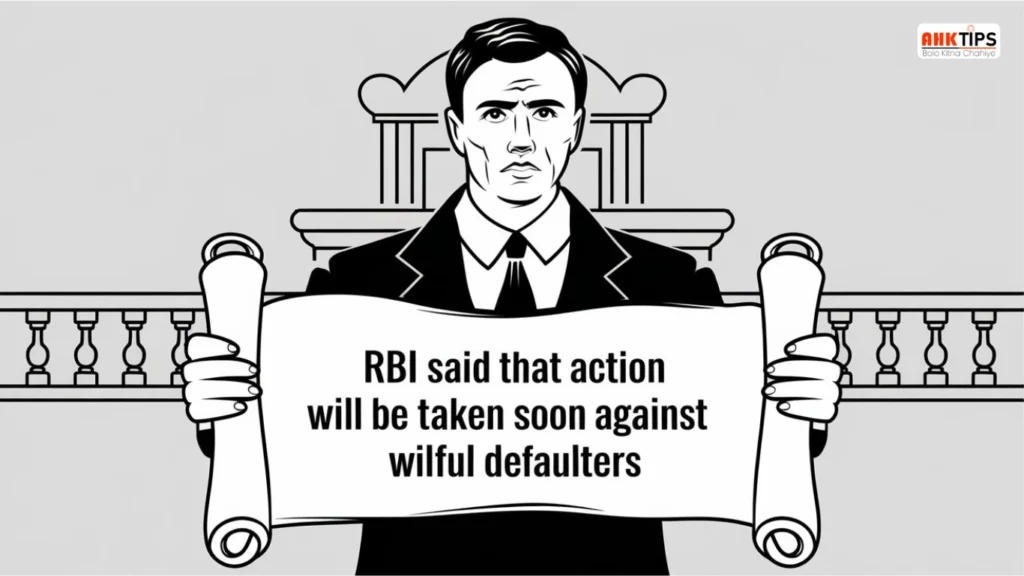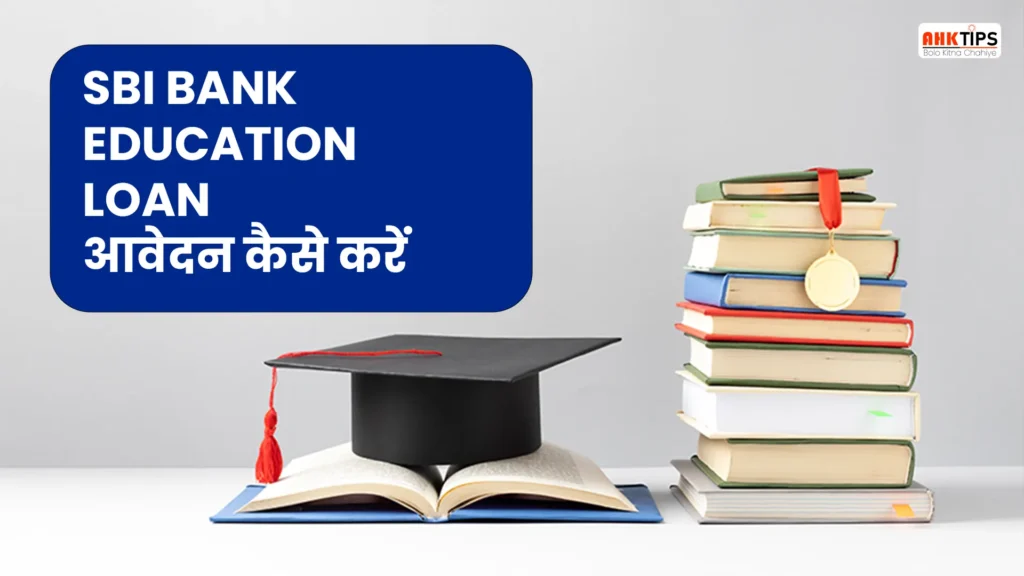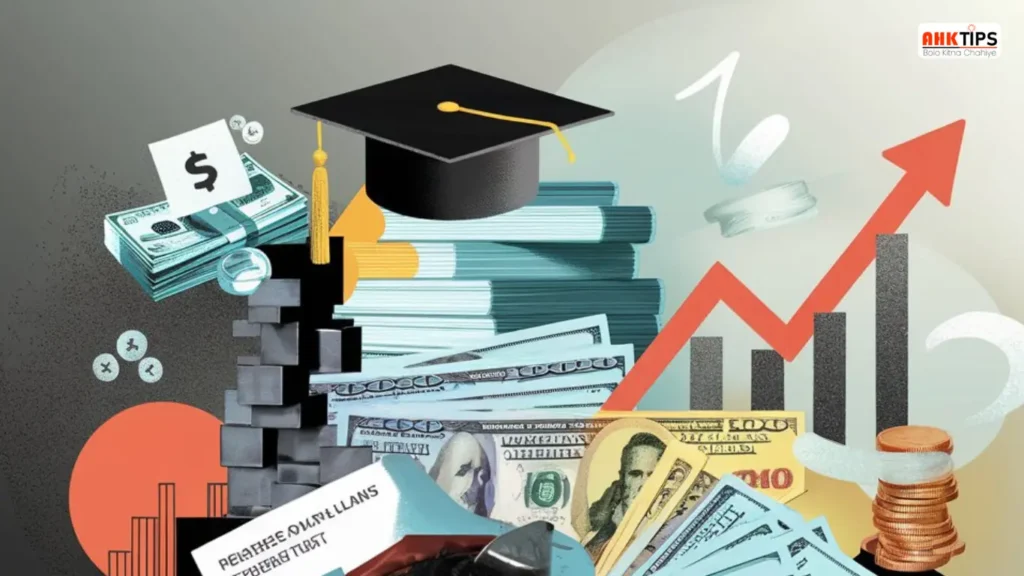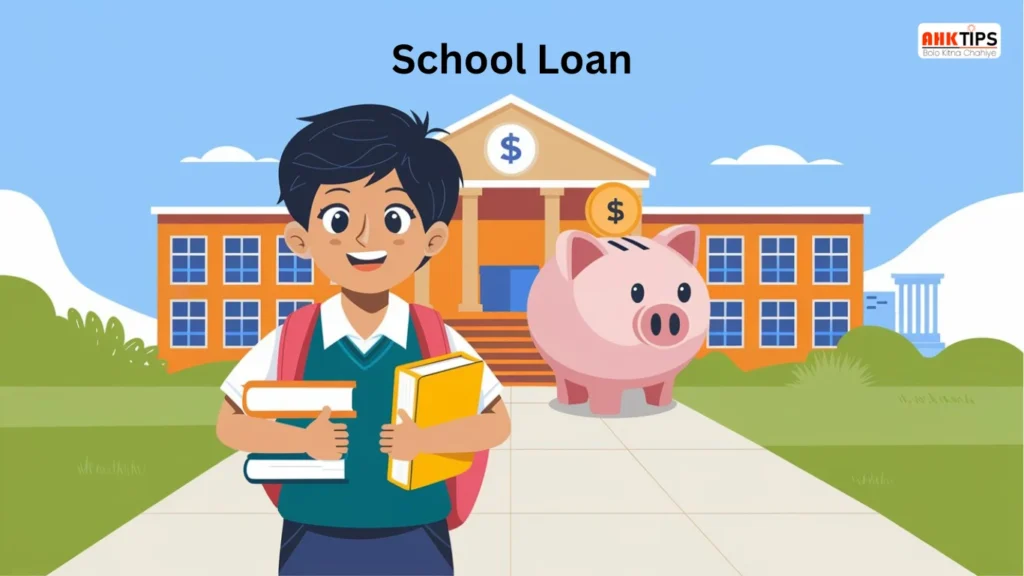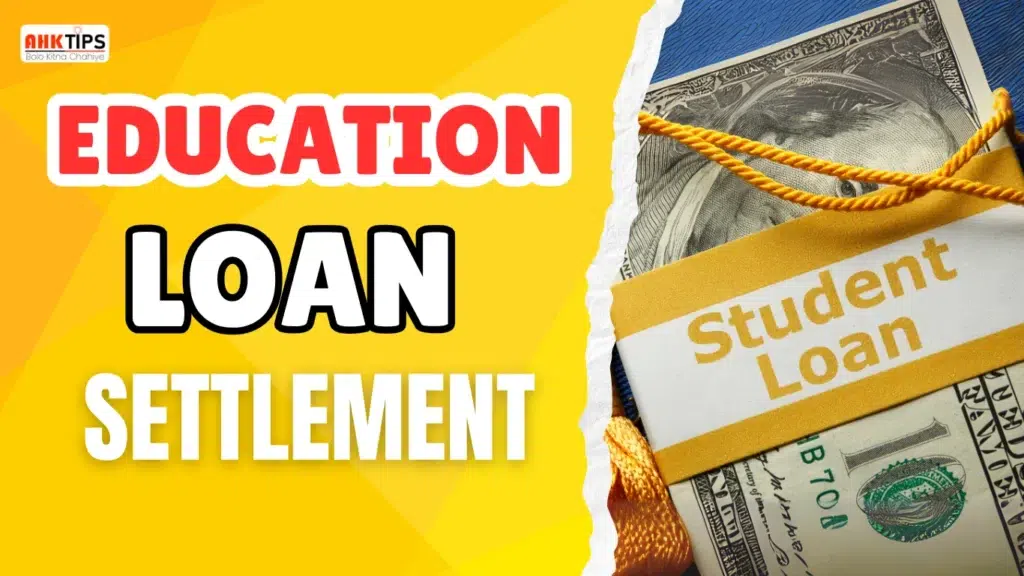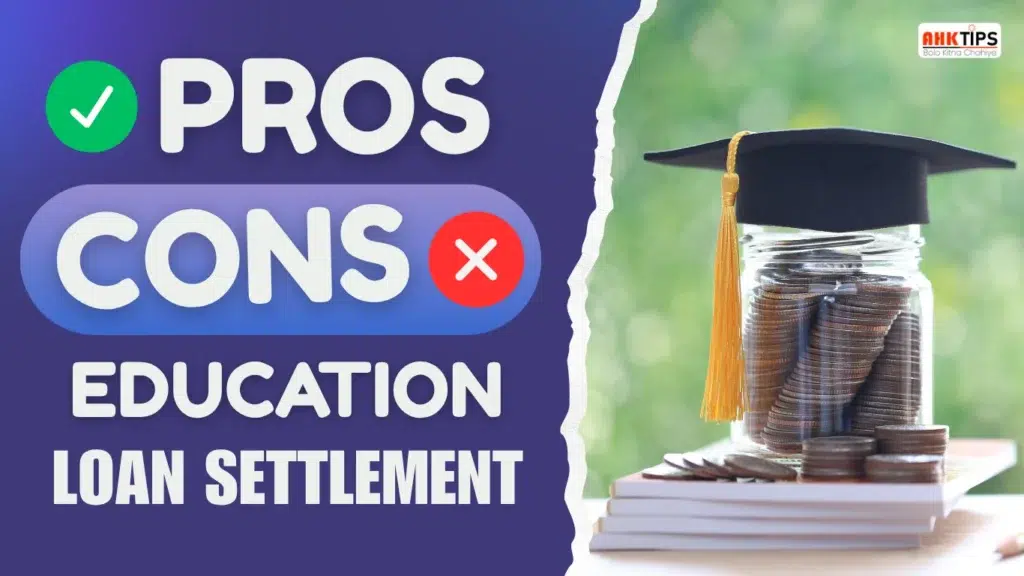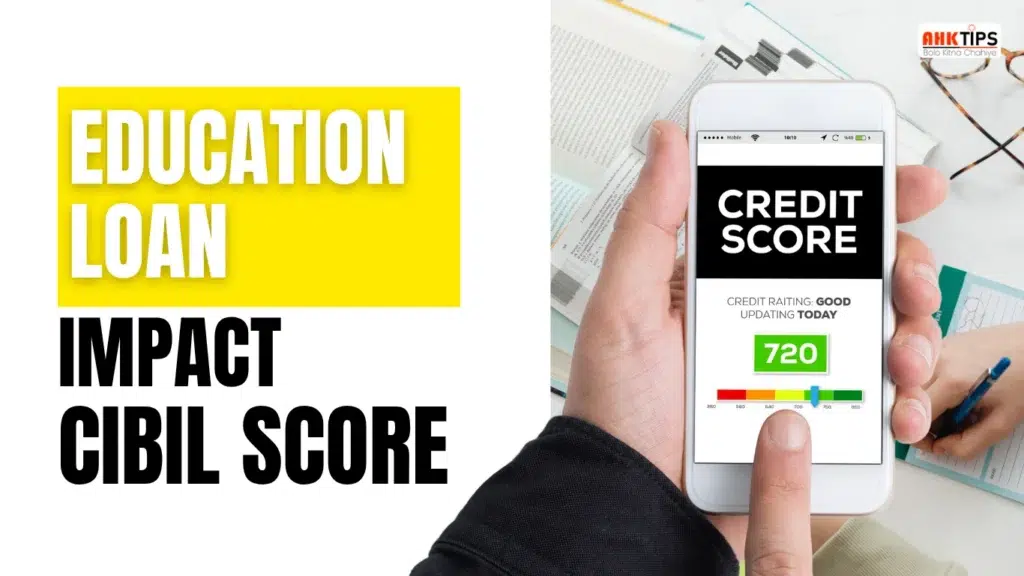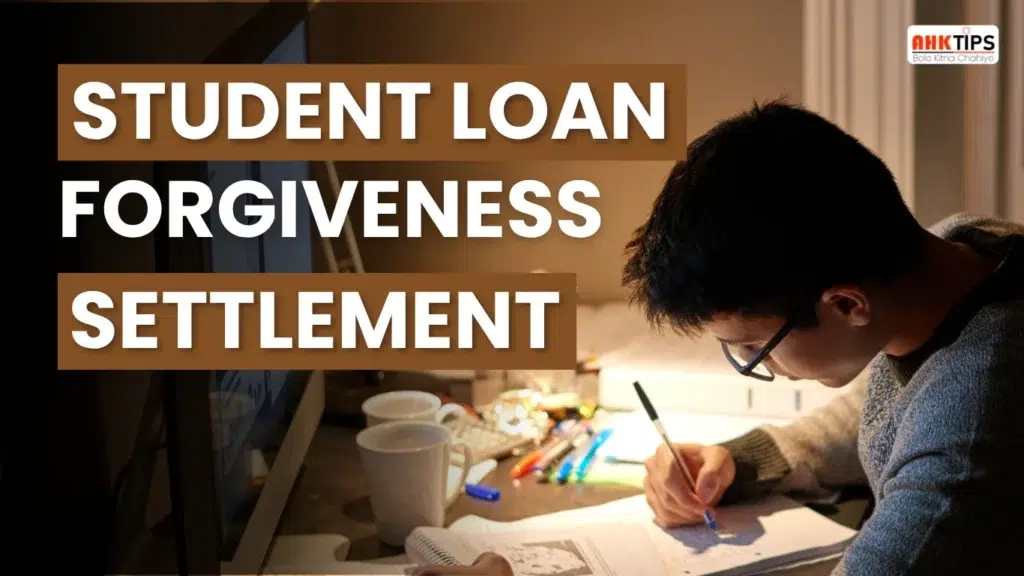Summary
When a student loan borrower is unable to repay the complete loan amount, his bank settles by accepting a smaller amount for the loan account closure. Usually, this is after long defaults and the failure of recovery efforts. Government banks such as SBI, Bank of Baroda, and PNB can approve such payments in exceptional and authentic situations of job loss, disability, medical emergency, or the death of the borrower. The loan borrower has to satisfy stringent criteria, file a formal request, provide financial proofs, and wait for bank verification. Settlement is a loan eligibility-reducing and credit rating-reducing process, but it provides temporary relief and debt closure. It is a last resort when all other repayment schedules are inapplicable. Before settlement, borrowers always need to think of EMI restructuring or payment deferment. It has long-term credit consequences but proves handy in real distress.
Introduction
Education loans fund the students’ education, but things don’t work out as they should. Job loss, low income, critical illness, or other financial troubles might render borrowers unable to pay back the loan. When EMI payments become unaffordable and the loan becomes a non-performing asset (NPA), borrowers resort to a provision called education loan settlement. This is a special deal where the bank is willing to accept less than what is due, simply to close the account. Although this seems like a respite, it is not the best option. Loan settlement ruins your credit score, impacts your capacity to avail loans in the future, and is only provided in sincere and severe cases. This article describes how loan settlements are done, who is eligible, step by step through government banks, and the advantages and disadvantages of taking this route.
What Is an Education Loan Settlement?
If you are not able to repay your student loan, you might encounter the term school debt settlement. Typically, a bank is a special agreement between the lender and the borrower in which the borrower is not able to repay the whole loan.
Simply said, loan settlement is the process by which the bank closes the loan account and agrees to accept a portion of the overall outstanding amount.
How Does an Education Loan Work Normally?
You agree to pay back the borrowed sum plus interest over a predetermined period of time when you accept an education loan. This is accomplished with consistent monthly payments called EMIs, or equated monthly instalments.
Regular payments help you remain eligible for future loans and maintain a good credit score.
What Happens When You Can’t Repay the Loan?
Unemployment, poor income, or individual issues sometimes lead to borrowers in financial distress. If all other collection efforts fail and repayments become challenging over a long time, the bank will consider loan settlement.
Loan settlement for education kicks in here. It is not our preference. It often comes in after multiple defaults and unsuccessful collection campaigns.
What Is Education Loan Settlement?
Usually less than the total owed, the one-time agreement known as education loan settlement allows the borrower to pay a lower amount and, in return, marks the debt as settled and closed by the bank.
Though it sounds like a comfort, this will affect your credit history long term.
Why Do Banks Allow Loan Settlement?
Banks solely take settling into consideration. The following are a few typical scenarios:
Financial Hardship
Should you lack money or employment and find yourself unable to pay even following reminders, banks could investigate your situation very severely.
Medical Emergency or Disability
Should the borrower or co-borrower experience a health problem, banks could permit a smaller payback.
Death of Borrower
Sometimes, banks would pay the debt to the family should the borrower die and no guarantor exist.
Difference Between Repayment and Settlement
Repayment is paying the full amount of the loan plus interest as agreed in the loan conditions. It earns a good credit score and enables lenders to trust you.
Settlement is only paying a fraction of what is due through negotiations. The bank writes off the balance and accepts a lesser amount. Your credit history will, however, flag the account as “settled,” which is not good from the point of view of future creditors.
Things to Keep in Mind
- Loan settlement serves only as a damage-control tool; it is not a gain.
- A settlement will lower your credit score.
- It could be challenging for you to obtain credit cards or loans down the road.
- Before choosing a settlement, always investigate the restructuring of repayments.
Can Government Banks Offer Loan Settlements?
Long-term financial problems cause debtors to frequently question if government institutions such as SBI or Bank of Baroda accept loan settlements. While only under rare and unique circumstances, the response is indeed yes. Considered a last resort, loan settlement is not a normal fix.
What Is Government Bank Loan Settlement?
The settlement of government bank loans is the agreement of the bank to take a smaller sum than what is due, therefore closing the loan account. This is not like loan repayment, in which the borrower pays the entire principal and interest on schedule.
Like private banks, government banks lean toward complete payback. In some extreme circumstances, nevertheless, they might permit a one-time settlement.
When Do Government Banks Allow Loan Settlements?
Regarding loan recovery, public sector banks have rigorous policies. Still, they might let a loan be settled under the following guidelines:
Long-Term Non-Payment
Should the borrower have not paid for a considerable period of time and the likelihood of recovery is minimal, banks could consent to a settlement to help to offset the loss.
Genuine Financial Hardship
Should the borrower have lost their work, have a significant income decline, or find it difficult to make due because of health problems, the bank might take into consideration a lesser amount to finish the loan.
Death of the Borrower
Government banks may consider a debt settlement in situations where the main borrower dies and there is no guarantor or co-borrower with repayment capacity.
Bankruptcy or Insolvency
Should the borrower declare bankruptcy and the court is engaged, settlement could be regarded as part of a legally binding outcome.
Do All Government Banks Follow the Same Policy?
Every government bank follows its internal policies and procedures. They all adhere, meanwhile, to the more general guidelines established by the Reserve Bank of India (RBI).
Here is a glimpse of how some big banks handle settlements:
State Bank of India (SBI)
Under its loan recovery policy, SBI could provide settlements—especially for non-performing assets (NPAs). Under their compromise settlement plan, they could assess the matter; but, the borrower has to show clear proof of financial difficulty.
Bank of Baroda
Under its loan compromise rules, Bank of Baroda also offers settling choices. Usually involving permission at several levels, the borrower must show that full repayment is not feasible.
Punjab National Bank (PNB)
Like other banks, PNB adheres to RBI policies and may provide one-time settlement in specific circumstances. Before deciding, they evaluate the worth of securities, credit history, and the default risk.
Things to Know About Government Bank Loan Settlements
- Settlement is partial recovery by the bank, not loan forgiveness.
- Your credit record will note the settled loan as “settled” or “written off.”
- Your credit will suffer, which will complicate your next loans.
Government banks are tougher and typically provide settlements only in cases when all other recovery paths have failed.
Who Qualifies for an Education Loan Settlement?
Student loan borrowers can look for alternatives to reduce their burden when they struggle to repay. One of the options is settlement of an education loan. Not everyone can avail themselves, however. Settlement on education loans is eligible only on some genuine and actual grounds.
This is not similar to regular loan payback or restructuring. It comes into consideration only after several default payments and when the loan turns into a non-performing asset (NPA).
Who Can Qualify for Education Loan Settlement?
Not every borrower with late payments qualifies for settlement. Before presenting this alternative, banks and other financial organisations closely review every case. These are the usual circumstances that satisfy eligibility for settlement based on student loans:
Job Loss or Unemployment
The borrower being jobless for a long time is one of the most frequently occurring causes for the settlement of college debt. It is difficult to repay the debt if a student completes their study but fails to get a job. In such a situation, the bank might consider settling after making a few follow-ups.
Long-Term Financial Hardship
While some borrowers have a work, their income might not be sufficient to handle loan EMIs and daily living expenditures. The borrower can be qualified for a settlement if their financial condition remains bad and the stress keeps on for a long period.
Usually in order to confirm the financial difficulty, banks want documentation including income certifications, bank statements, or salary stubs.
Permanent Disability
It is practically impossible to repay the loan when the borrower is permanently incapacitated and can no longer work. Banks under such a situation would allow a one-off payment or even write off the loan on humanitarian grounds. To support the claim are medical certificates and government official records.
Serious Medical Condition
Considered for a settlement could also be borrowers with long-term or life-threatening conditions. Before deciding, banks review medical data and assess the degree of the problem.
Death of the Borrower
In sad events whereby the borrower dies and there is no guarantor or co-borrower with ability for repayment, banks could provide the family members a loan settlement.
How Banks Evaluate Eligibility
Every issue is examined separately. Before authorising a settlement, banks weigh various elements:
- Loan default duration
- Total outstanding sum
- Attempts toward repayment undertaken
- Support documentation for financial difficulty
- Employment records and credit history
The borrower, or their family, has to approach the bank and ask for a review. Depending on the above considerations, banks could negotiate the amount and provide a one-time settlement choice.
Key Points About Eligibility
- Usually, the last recourse when other debt solutions fall short is settlement.
- One needs strong documentation and evidence of financial difficulty.
- Approval relies on bank policies and is not assured.
- The loan recovery or settlement division of the bank makes the last call of decision.
Steps to Negotiate an Education Loan Settlement with a Government Bank
In case the regular options like restructuring or scaling down of EMI fail, and you are not in a position to repay your student loan, you may consider taking up loan settlement. To repay a government bank school loan is essential, as the process requires official steps and appropriate correspondence.
This is a short, step-by-step guide to assist you in understanding the public sector bank (SBI, Bank of Baroda, PNB) settlement procedure.
Step 1: Know Your Current Loan Status
You should be aware of the status of your loan before you approach the bank. If your loan account is already under the category of Non-Performing Asset (NPA), then you might be eligible for settlement. Banks under the government will usually consider settlement only after several defaults and failed repayment attempts.
Step 2: Visit the Bank Branch or Recovery Department
After making arrangements, visit the bank and meet with the branch manager or the loan recovery department manager personally. Direct interaction with a manager or loan officer who handles college loans is crucial.
Illustrate your case clearly and inquire whether there is a one-time settlement provision. The bank will only entertain such a request if your case is eligible for settlement.
Step 3: Write a Formal Request Letter
You shall be asked to submit a formal settlement loan request letter after you negotiate with the bank officer. The letter should include:
- Your history and the initial reason for the loan
- Why were you unable to pay the full amount?
- All you have done so far to pay back the money
- A humble plea for a settlement, considering your case
Make sure that you maintain the tone genuine and respectful tone. Refrain from being deceitful whatsoever.
Step 4: Provide Supporting Documents
You must provide proof of financial difficulties in support of your application. These can be:
- A letter or proof of loss of job
- Income certificates or pay slips—in the event of low income
- Bank statements
- Death certificate (in case one is applying in respect of a deceased borrower)
These records enable the bank to seriously handle your settlement request and confirm your claims.
Step 5: Wait for Evaluation and Offer
The bank will review your matter following your request and documentation. Depending on the bank’s internal policy, the process can last few weeks.
If the approval does not occur, the bank can propose a settlement figure lower than the amount outstanding. This is usually one lump sum payment meant to close the account.
Step 6: Negotiate the Settlement Amount (If Needed)
If the final agreed amount is too much, you can try to negotiate a lesser amount by paying a lump sum. Negotiation, however, hinges on the bank’s internal policies and your documentation substantiating it.
Step 7: Written Confirmation
Ask for written confirmation from the bank following an agreed final settlement figure. It includes:
- Total amount settled
- Date of payment
- Terms of settlement
- Guarantee of verification to facilitate loan closure upon payment
Step 8: Payment and No-Due Certificate Retrieval
Make sure you receive a loan closure letter and no-dues certificate upon payment. These certificates are essential for your credit record and future entries.
Pros and Cons of Education Loan Settlement
If repaying an education loan becomes difficult, the borrowers may consider loan settlement. Though it provides temporary relief, it’s also important to compare the advantages and disadvantages. Knowing the advantages and disadvantages of debt settlement helps you make an informed decision.
Pros of Loan Settlement
Less Financial Burden
Less than the total amount outstanding is paid through loan settlement by the borrower, which is the greatest benefit.
This gives immediate relief and allows a person who is in deep financial trouble to remain off illegal ground.
Closure of Loan Account
Formally, the loan account is closed as soon as the settlement amount is received.
This puts an end to notices, collection calls, and recovery agency visits.
Chance to Restart Financial Life
Repayment of the debt permits the borrower to begin anew. While it affects credit history, it frees one from the burden of outstanding obligations and allows the person to focus on rebuilding their finances.
Available in Genuine Hardship Cases
While loan settlement is not available to all, it offers a legal means for borrowers experiencing job loss, illness, disability, or death in the family to end the loan when payback is not feasible.
Cons of Loan Settlement
Negative Impact on Credit Score
The blow to your credit rating is one of the primary disadvantages. After settling, the loan is marked as “settled” instead of “closed.” This shows subsequent lenders that you did not pay the full amount.
Difficulty Getting Future Loans
A settled status on your credit report can complicate future loan, credit card, or even home loan approval. Settlement marks on a credit report signal risk to lenders.
No Benefit for Co-Borrowers
If there is a co-borrower or guarantor on the loan, the settlement may also affect their credit rating. They may also encounter problems with their subsequent loan applications.
One-Time Option
Single-timer fixes are for loan settlement. It cannot be reversed; thereby, should you default again sometime in the future, banks may not be so keen to deal with you.
Legal Follow-Up in Some Cases
Depending on the agreement, the bank may initiate recovery activities such as court notices and seizure of assets should the settlement not be paid within the stipulated time.
Final Thoughts on Loan Settlement
Loan settlement must be thought of as a last option, not an easy getaway. Even though it assists with the heavy burden of debt, the long-term impact on your financial reputation may be slightly adverse.
Even before making a choice to pay, borrowers must always explore alternative options such as EMI lowering, moratorium, or rescheduling of payments.
Conclusion
Settlement of an education loan is a financial saviour for the borrower who is in severe trouble, such as loss of job, disability, or serious illness. It is a means of ending the loan account by paying less money, relieving the current economic pressure. But it must be considered a last option. Settlement impacts your credit rating, reduces your scope of future borrowing, and has certain long-term implications on your finances. Before opting for this path, it’s prudent to consider options such as restructuring under EMI, moratorium, or refinancing. Even if you proceed with a settlement, all steps like written intimation and obtaining a no-dues certificate must be followed suit. Knowing the complete scenario assists in making an informed choice and planning for your financial recovery.
Frequently Asked Questions (FAQ’s)
Ans: In this deal, the bank accepts a lower payment than you owe to pay off the loan.
Ans: In this deal, the bank accepts a lower payment than you owe to pay off the loan.
Ans: Only borrowers who are truly in trouble such as illness, job loss, or death in the family may qualify.
Ans: Yes, but rarely and after a series of defaults or serious financial issues.


